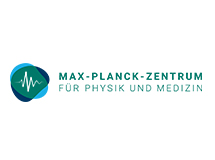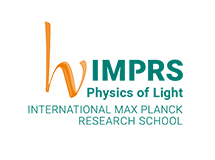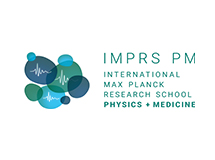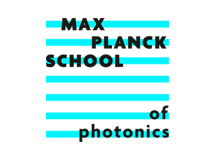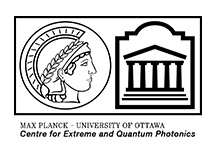Course website for 2023, summer semester:
https://pad.gwdg.de/s/Machine_Learning_For_Physicists_2023
Machine learning and its applications to science and physics are advancing rapidly. In physics, progress is driven by a growing worldwide community applying these tools to many areas, from statistical physics to quantum optics and quantum many-body theory. The theory division at the Max Planck Institute for the Science of Light has been active in this domain since 2017, and it is now our biggest focus. For example, we have pioneered deep reinforcement learning for quantum physics, initiated the rapid prediction and optimization of topological bandstructures via deep neural networks and developed new tools for artificial scientific discovery. We have also introduced the first general concept for physical self-learning machines. On this page, you will find links to lectures delivered by Florian Marquardt in the past few years, prepared with physicists in mind. Enjoy!
Les Houches Lecture Notes - F. Marquardt, “Machine Learning and Quantum Devices”, SciPost Phys. Lect. Notes 29 (2021). These compact lecture notes are from a series of lectures presented at Les Houches, for quantum physicists. Essentially, they form a brief version of the first lecture series mentioned below. Includes material on the basics of neural networks (backpropagation, stochastic gradient descent, convolution networks, etc.), but also recurrent networks, Boltzmann machines, reinforcement learning, and some remarks on machine learning for quantum devices and quantum machine learning.
Course Website "Machine Learning for Physicists (2021)" - Hands-on practical introduction to deep learning and its applications, with many examples using tensorflow/keras. Includes links to videos (YouTube). Start here if you have no prior knowledge and want to quickly apply neural networks to problems in physics! This is a course delivered several times (2017/19/20/21).
Course Website "Advanced Machine Learning for Physics, Science, and Artificial Scientific Discovery" - Advanced course (2021/22) with more emphasis on mathematical concepts and advanced material like graph neural networks, transformers, information theory, normalizing flows, Bayes, implicit layers, reinforcement learning, etc. These form the 'toolbox' that may eventually be useful for teaching computers how to produce scientific ideas creatively, in the manner of good human scientists. Also see the videos (YouTube) of the lectures.
Postdoctoral and PhD positions available!
Do you want to contribute to the cutting edge of applying machine learning to quantum physics? Do you want to help create 'the artificial scientist', using tools aimed at general artificial intelligence? Do you want to explore and design neuromorphic hardware platforms to help speed up machine learning? We are currently screening applications for postdocs and PhD students in all of these domains. Among others, there are several postdoc positions open in the context of the Munich Quantum Valley, with the aim of taking applications of machine learning to challenging questions in quantum computation to the next level.
When applying for a PhD student position, please send your CV to Gesine Murphy (cc Florian Marquardt). When applying for postdoctoral positions, please do the same but also have two letters of reference sent to the same addresses!
We are looking forward to your application!
Note: We are keen on receiving applications from applicants with a diverse set of backgrounds, including people interested in switching from other fields of physics. We are looking above all for excellence. The only specific requirement is that you should be very comfortable with programming, enjoying to write elegant and reliable software, since obviously that is the basic ingredient of machine learning.


